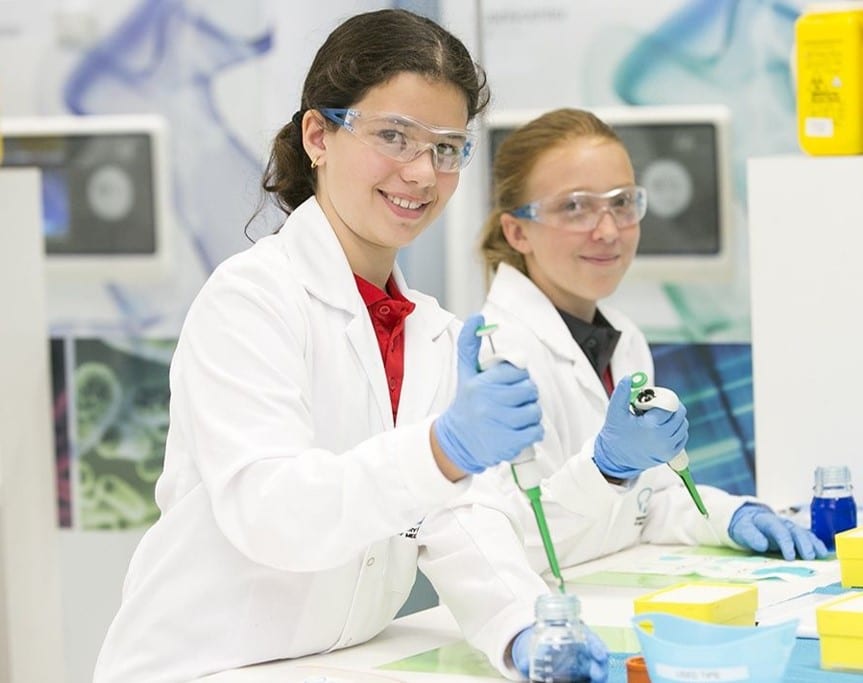Year 12: Understanding Mutations using PCR
Weekdays during school term | 9:30 am – 2:30 pm

Weekdays during school term | 9:30 am – 2:30 pm
Gain a deeper understanding of how mutations can be identified and understood through PCR.
Designed for Year 12 ATAR Biology or Human Biology
$50 per student (minimum 20 students)
Maximum 32 students
Content includes
In the dry lab, students will discuss the causes and effects of mutations, and how the process of PCR can help us gain greater insights into them.
In the lab, students work on a case-study family with a genetic disease. They identify the mutation using the techniques of PCR and Gel Electrophoresis.
Students then learn about DNA sequencing, and how it is used to find the cause of the genetic disease.
This booklet contains information about payment and pricing, and cancellations.
Western Australian Curriculum Links
Biology Year 12 | Unit 3 Continuity of Species
Science Understanding
Pedigree charts can be used to reveal patterns of inheritance and assist in determining the probability of inheriting particular alleles in future generations.
DNA sequencing enables mapping of species genomes; DNA profiling identifies the unique genetic makeup of individuals; processes such as PCR (to amplify minute samples of DNA to testable amounts) and gel electrophoresis can be used to facilitate DNA sequencing of genomes.
Science as a Human Endeavour
Technological developments in the fields of comparative genomics, comparative biochemistry and bioinformatics have enabled identification of further evidence for evolutionary relationships.
Science Inquiry Skills
Conduct investigations safely, competently and methodically for the collection of valid and reliable data.
Human Biology Year 12 | Unit 4 Human Variation and Evolution
Science Understanding
Mutations are the ultimate source of variation introducing new alleles into a population: new alleles may be favourable or unfavourable to survival
Science as a Human Endeavour
Developments in biotechnology, for example polymerase chain reaction (PCR), gel electrophoresis and DNA sequencing, have increased access to genetic information of species and provide evidence for evolution (the process of obtaining a DNA sequence is not required).
Science Inquiry Skills
Conduct investigations safely, competently and methodically for the collection of valid and reliable data.